Disk mirroring utilizes multiple disks to maintain data synchronization.
GDS provides disk mirroring by creating one logical disk from multiple physical disks.
With GDS disk mirroring, applications can continue disk accesses even if one mirror disk (a disk that is mirrored) fails. Therefore, all the data in disk is not damaged and applications can continue normal operations.
Figure 1.4 Disk Mirroring
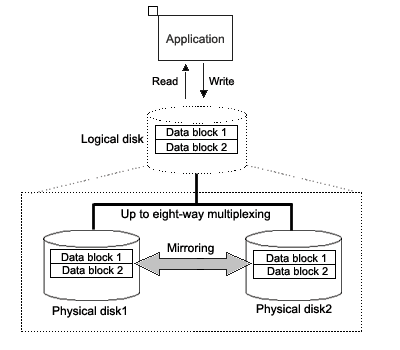
GDS also supports mirroring of a single disk unit and mirroring of disk arrays. It can mirror disk units of various usage and configuration, including a system disk installed with an operating system, and a disk connected to multiple servers.
Examples of special mirroring implementation are explained below.
System disk mirroring can mirror system disks with Solaris operating system installed.
If a system disk failure occurs, the entire system probably stops and even booting will become impossible, and operating system reinstallation will be required. As a result, service stop may remain for a long time.
System disk mirroring ensures continuous system operation even when a failure occurs in part of the disks.
Additionally, it enables system boot in a situation where disk failure has occurred.
The following system disks can also be mirrored:
SAN Boot environment
Guest domain in Oracle VM
Figure 1.5 System Disk Mirroring
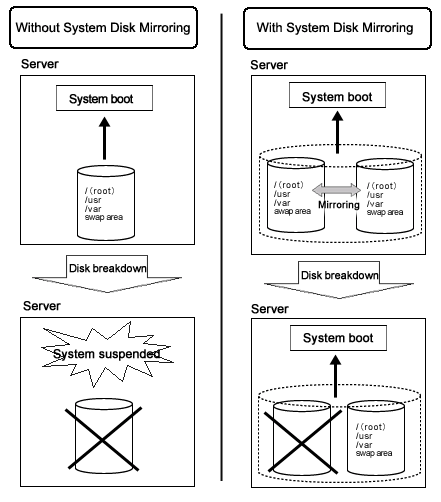
GDS can provide mirroring between high-performance and high-reliability disk arrays.
Mirroring two disk arrays connected with Fibre Channel can protect data from unexpected accidents and power shortage.
Moreover, disk units with redundant access paths can also be mirrored with specific software.
Figure 1.6 Mirroring between Disk Array Unit
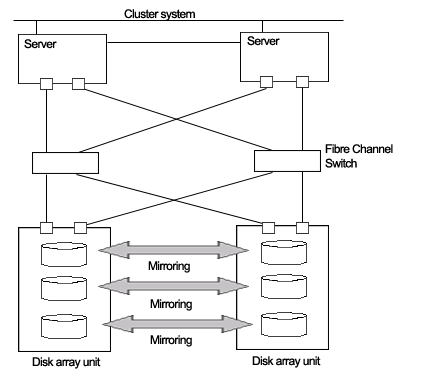
GDS can mirror shared disk units connected with a cluster system composed of multiple servers (also referred to as nodes).
Such mirroring is called shared disk mirroring in distinction from local disk mirroring that mirrors disks connected to a single node.
The GDS's shared disk mirroring function can be used with applications, such as the Global File Services (hereinafter GFS) Shared File System, that provide simultaneous access from multiple servers to shared disks, not to mention switch-over or standby type applications.
Figure 1.7 Shared Disk Mirroring
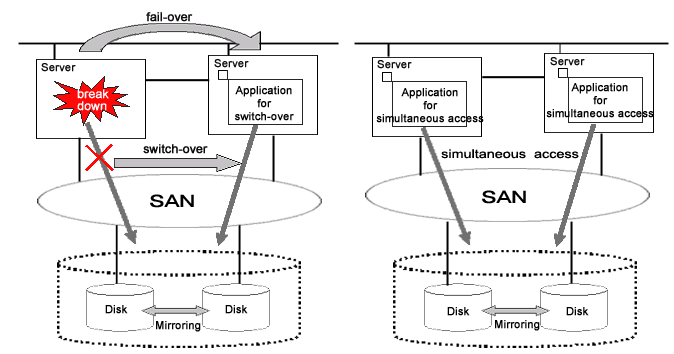
Disks in Solaris virtual environment such as Solaris Zones environment and Oracle VM environment can be mirrored.
In Solaris Zones environment, GDS which operates in a global-zone mirrors the disk used in a global zone and non-global zone.
In Oracle VM environment, GDS which operates in a control domain or an I/O root domain mirrors the disk used in the domain, and GDS which operates in a control domain, an I/O root domain, or a guest domain mirrors the disk used in a guest domain.
Figure 1.8 Disk mirroring in virtual environment
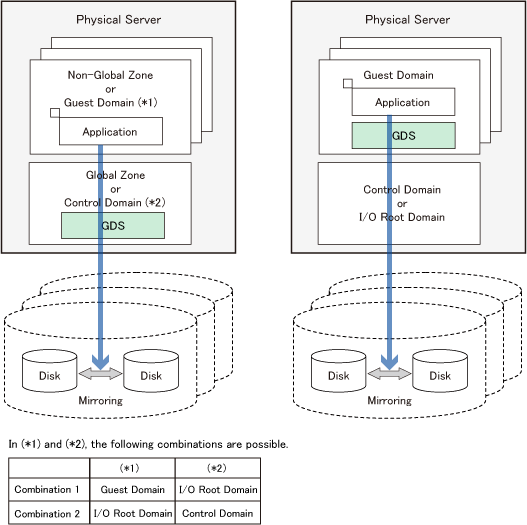
GDS: Global Disk Services
See
For details on the usage of GDS, see the following.
For Solaris Zones environment
"A.2.41 Usage in Solaris Zones Environment."
For Oracle VM environment
"A.2.39 Usage in Oracle VM Environment."